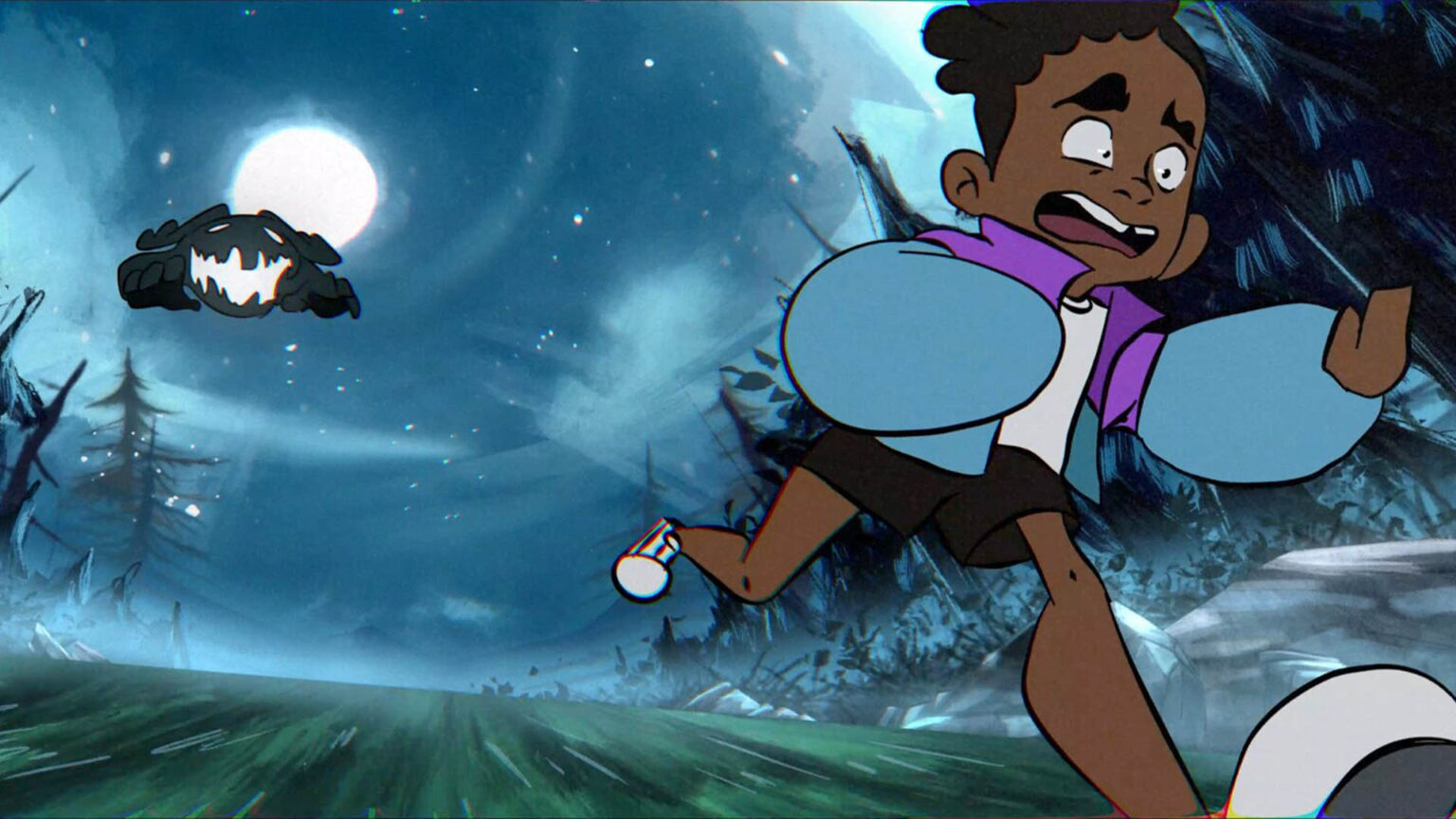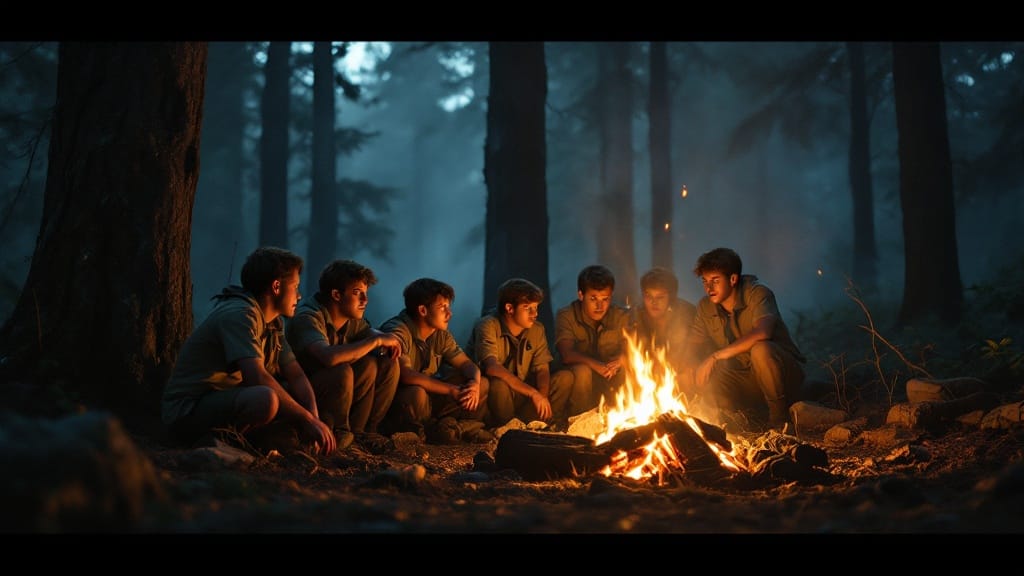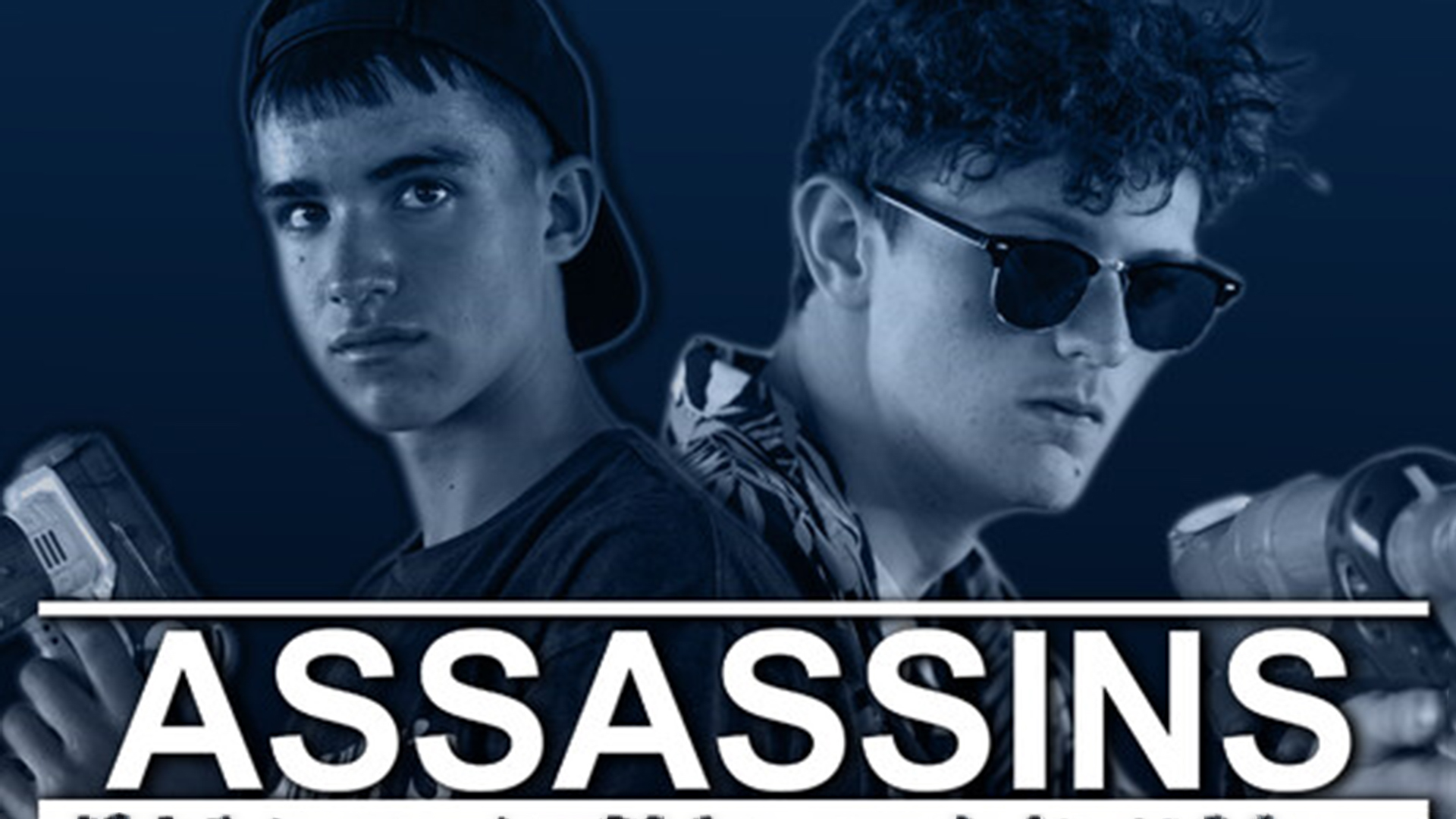Comedy
Camp Kona

Camp Kona, a short-form animated monster movie, takes us on a nostalgic journey through 80’s summer camp adventures, combining elements of thrill, humor, and mystery. The film revolves around Jasper, a reluctant camper at Camp Kona, who stumbles upon the dark history of the camp and unravels the mystery behind the disappearance of a girl named Kaia during the summer of 1982.
Adriel Meka, the Writer/Director of Camp Kona, drew inspiration from his favorite 80s movies and Spielberg films, aiming to capture the essence of retro horror and iconic cult classics. Reflecting on his childhood experiences at summer camp in Canada, Meka envisioned a story that blends magical realism with imagination and sci-fi, echoing the spirit of movies like The Goonies and Stranger Things.
“This began to develop into the idea of a kid going missing at the camp and then our new protagonist exploring the aftermath of a place with a dark history” said Meka. “Jasper was inspired by my younger self and the story follows his experience in overcoming a reluctance to attend camp once he found something unexpected to make it fun. A thriller theme and humorous characters enabled me to explore a full range of emotions through the film and knew I also wanted it to have a fitting retro soundtrack. Once I had the story written all the pieces were in play, and I moved into the next stages of getting to direct and work with a wonderfully talented team that helped bring Camp Kona to life!”
Movie making is hard in both live action . Camp Kona marked Meka’s directorial debut in animated short films, requiring him to lead a crew, manage artists, and navigate the complexities of animation production. The film was initially conceived as a 3D dystopian sci-fi project, but Meka pivoted to align it with his love for retro films, resulting in a condensed production schedule.
While discussing his favorite part of production, Meka expressed his deep love for directing, emphasizing the joy of creating characters and stories that resonate with both him and the audience.
“Camp Kona’s protagonist, Jasper, is like a younger version of me and a piece of how I see the world. There’s something deeply fulfilling about coming up with these characters and tales that are close to you then, being able to get other people excited about it.”
The challenges pushed Meka to learn the intricacies of building a crew, developing an animation pipeline, and becoming a director. The experience, though initially daunting, became an exciting journey of growth and self-discovery.
“I learned the importance of a team and how even though “alone you can go fast”, “together you can go far” The process of making the film gave me the chance to grow as a leader, a creative, and as an individual. and I wouldn’t change it for the world”
Looking back, Meka contemplates the possibility of a different approach, expressing interest in showcasing his 3D skills in a reimagination of Camp Kona. Imagining the characters in a detailed 3D world, he draws inspiration from stylized CG animations like Arcane and Spider-Verse, envisioning a sequel that explores new visual territories.
For aspiring filmmakers, Meka offers advice rooted in authenticity and collaboration. He encourages creators to use the medium as a voice to express their inspirations genuinely and emphasizes the importance of building a great team. Meka highlights the continuous growth in any artistic endeavor, urging individuals to accumulate “pencil mileage” and persevere through the inevitable growing pains.
To stay updated on Meka’s projects and the journey of Camp Kona, audiences can follow the film’s Instagram account @CampKonafilm. For more insights into Adriel Meka’s work, his personal Instagram account @arekusan_meka , provides a glimpse into future creative endeavors.
Comedy
Troop 458

WARNING! This review contains SPOILERS!
Troop 458, written by Trevor Allen, captures the often daunting, yet transformative, experience of being the new kid in a world full of unknowns. We follow Sidney, an anxious boy thrown into his first Boy Scouts campout, where he faces both the perils of acceptance and the strangeness of his eccentric scout leader. As spooky campfire tales start to weave into reality, Sidney is forced to confront his fears head-on, finding moments of humor, adventure, and unexpected camaraderie along the way.
I like the concept of Troop 458 because it blends coming-of-age themes with a playful sense of adventure, all wrapped in an atmosphere tinged with just the right amount of mystery. Allen’s writing brings to life a cast of memorable characters, especially through Sidney’s journey of growth. The tension between humor and fear feels authentic to the Boy Scouts’ setting, and it captures the real challenges kids face when trying to fit in.
What resonated with me most was the screenplay’s exploration of courage—not just in facing mythical dangers but in embracing who you are, quirks and all. Some aspects could benefit from a clearer focus on character motivations and tighter pacing to keep the momentum strong, particularly during scenes that blur the line between myth and reality.
The dialogue is great in many places, offering humor that feels natural for a group of young scouts. There were moments where I felt the conversations could be a bit sharper or more distinct to heighten the comedic or emotional impact. Character development is a strong suit, with Sidney’s evolution being both relatable and satisfying, but secondary characters could have a bit more depth to elevate the ensemble.
Allen’s Troop 458 is polished, with solid grammar, spelling, and formatting that adhere to professional standards. The structure is clean and makes for an easy read, setting up scenes that are visually compelling.
Troop 458 delivers an enjoyable mix of humor, heart, and a touch of the supernatural, leaving me eager to see how it might come to life on screen.
Comedy
Game Night

Directed by Carston Hadlock and Alex Howard
Warning – This review contains spoilers.
Game Night brings a fun and lighthearted take on a high-stakes poker game that quickly spirals into chaos. The film follows two players as they engage in an increasingly absurd battle, pulling in cards from different games to outsmart one another. I found the playful banter and surprise twists to be entertaining with the film’s simple concept working well within its short runtime. The escalating nature of the game kept the energy high and I thought the twist at the end was a clever and humorous touch that left me smiling.
The story is easy to follow, though it’s more about the journey than the destination. The back-and-forth between the two players keeps the tension alive, with each of them raising the stakes by introducing cards from other games into the mix. The comedic timing in the editing really sold these moments, as the quick cuts and dramatic delivery from the actors added an extra layer of humor to the film. The characters themselves were fun to watch, especially in how seriously they approached the absurdity of their escalating card game. It may not be the most relatable film for someone who isn’t familiar with card games, but the humor and pacing make it enjoyable for a broader audience.
Game Night has some standout technical elements. The sound design effectively complements the fast-paced nature of the film, adding a sense of urgency that drives the scenes forward. While the lighting was generally well done, there were a few close-ups that felt slightly out of focus, and in some wider shots, the composition wasn’t as strong—the focus seemed to drift to a case of poker chips rather than the characters themselves. Still, the fun angles and creative shot choices helped maintain visual interest throughout. The score is dramatic and slightly over-the-top, but it works well within the style of the film, enhancing the comedic tone.
The film also uses close-up shots effectively, adding intensity to the card-playing moments, which helped build the sense that something serious (and yet hilariously inconsequential) was happening. While the sound was mostly solid, I did notice some background room tone cutting out at times, which was a bit distracting. However, the overall editing did a great job of pacing the film, keeping it flowing smoothly from one comedic beat to the next without any jarring moments.
Game Night is a fun, lighthearted short that doesn’t take itself too seriously, and that’s precisely what makes it work. The film has a clear sense of humor, and while the stakes may not be high in the grand scheme of things, the playful twist at the end adds a memorable conclusion. Audiences looking for a quick, entertaining watch will likely enjoy the film’s humor and energy.
Action
Assassins

Directed by Carston Hadlock
Warning – This review contains spoilers.
Assassins delivers a fun and energetic look into a high-stakes game that pits friends against each other in a battle of strategy and wit. As the number of players dwindles, the tension ramps up, and the game becomes increasingly intense. I found the film entertaining, especially with its playful use of classic action film tropes like slow-motion shots and chase sequences. It’s a simple concept but the execution made it enjoyable with plenty of humor sprinkled throughout.
The film has good pacing and the story is easy to follow. We’re thrown into the heart of the action from the beginning with assassins attempting to outsmart each other as they vie to be the last one standing. I appreciated how the film used the cinematography to enhance the chase scenes, especially the dynamic shots of cars pursuing assassins and the camera following them across fields. It added an action-packed vibe to what could have been a straightforward water gun tournament. The use of slo-mo during key moments also gave the film a lighthearted, almost parody-like feel, which worked well with the tone.
From a technical point of view, Assassins has its ups and downs. The lighting was inconsistent, especially in the darker scenes where it became a bit hard to see the action. However, it wasn’t a major issue throughout the film. The sound was clear for the most part, though there was a slight echo in some dialogue, but it didn’t detract much from the experience. The editing flowed smoothly, keeping the film’s pacing tight without feeling rushed, and the action scenes were cut together in a way that maintained the intensity of the game.
Assassins was undeniably fun to watch. There’s a playful nostalgia to it, reminding me of the competitive spirit of water gun fights and games from childhood. It taps into that lighthearted, competitive energy, which is likely to resonate with audiences looking for something that’s both comedic and action-packed.
Assassins offers an enjoyable mix of action and comedy, creating an engaging story from a simple water gun game. Its creative use of cinematography, especially during chase sequences, keeps the energy high, and while the lighting and sound could be improved in places, the overall execution is solid. Audiences who enjoy light-hearted action shorts with a comedic twist will likely appreciate this fun and entertaining film.










